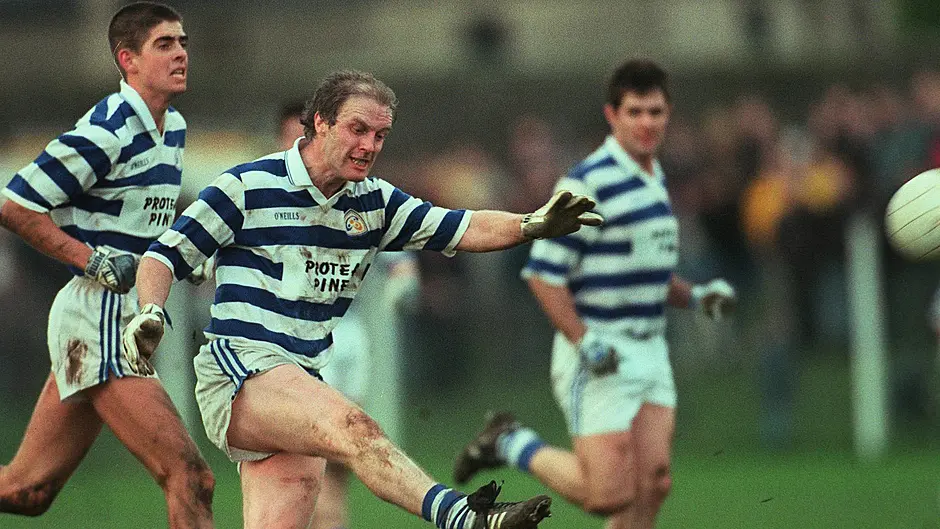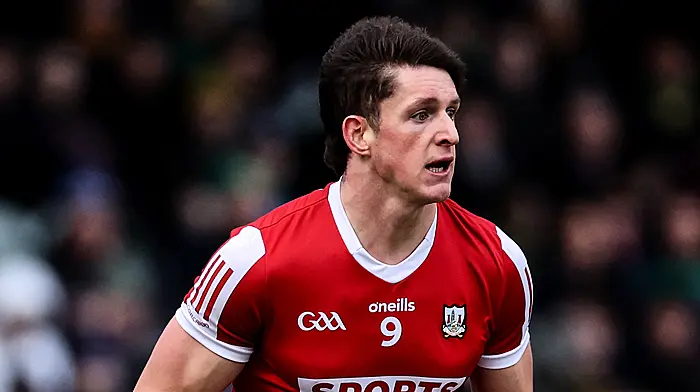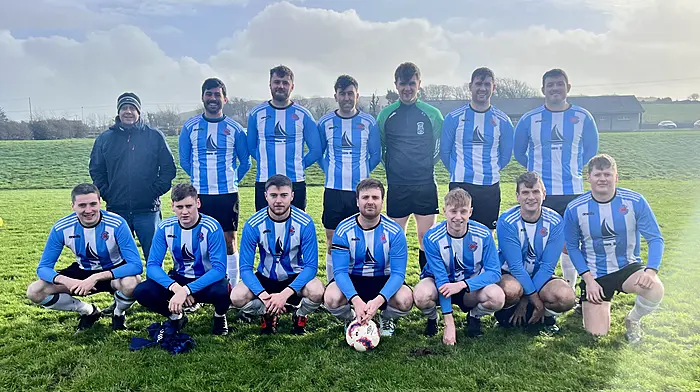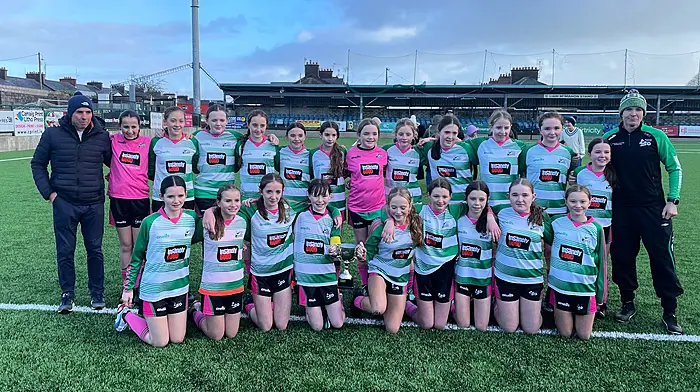Southern Star GAA reporter NOEL HORGAN has been lucky enough to watch many of the greats of Cork football in the flesh. It was in 1966 when he first saw Cork taste senior championship success in football, beating Kerry in the Munster final. Here, he ranks his top ten Cork footballers
*****
10. Graham Canty (Bantry Blues) – Earmarked as a future inter-county star when, as a minor, he featured in Bantry Blues’ county senior football championship success in 1998, Canty certainly fulfilled his potential in the top grade. After making his championship debut under Larry Tompkins in 2000, he came to be regarded as the team’s spiritual leader long before he was officially appointed captain by Conor Counihan in 2008. Equally at home in defence or at midfield, he emulated the distinction shared by Tompkins and Steven O’Brien in becoming the third Cork footballer to be thrice honoured as an All-Star over the course of a career highlighted by the 2010 All-Ireland victory.
9. Teddy McCarthy (Glanmire) – The only man to win All-Ireland senior medals in hurling and football in the same year, McCarthy is guaranteed a prominent place among the immortals of Gaelic Games. While high-fielding was generally regarded as his most compelling attribute as a footballer, there was much more to his game than that, evidenced by his selection as player-of-the-year in 1989.
8. Steven O’Brien (Nemo Rangers) – A prodigious talent, O’Brien won an All-Ireland medal as a teenager in his first season with Cork in 1989. He filled the full-back berth when the Sam Maguire was retained at Meath’s expense the following year, but it was as an attacking centre-back that he performed with huge distinction for the majority of his career, not least in the 1994 Munster semi-final when he scored a memorable second-half goal to swing the tie in Cork’s favour. An All-Star winner in 1990, 1994 and 1995.
7. Dinny Allen (Nemo Rangers) – After making an impressive championship debut in 1972, it seemed as if a bright future at the top level was on the cards for Nemo Rangers’ blonde bombshell Dinny Allen. His decision to concentrate on League of Ireland soccer cost him an All-Ireland in 1973, however, and he endured several frustrating and largely fruitless seasons on returning to Cork football two years later. Dropped from the panel in 1986, he was restored to favour in 1988, fully justifying his recall with a five-star display, highlighted by a goal of real quality which paved the way for a narrow Munster final win over Kerry. At 37, he finally captured the cherished and elusive Celtic Cross in 1989, and, in captaining the team to victory over Mayo, the richly-talented attacker enjoyed a fairy-tale conclusion to his career at the highest level.
6. Billy Morgan (Nemo Rangers) – Back in the 1965-1966, Cork lost an important league game to Kildare at the old Cork Athletic Grounds primarily because of a couple of glaring errors by goalkeeper Brian Murphy of Crosshaven. It turned out to be a blessing in disguise as Murphy – who went on to enjoy a few good seasons at corner back with Cork, lining out in the 1967 All-Ireland final which was lost to Meath – was replaced between the sticks by Billy Morgan. It’s history now that Morgan became the outstanding net-minder of his generation, an inspirational skipper in 1973 when he won an All-Ireland medal, an All-Star award and was the first custodian to be chosen as footballer-of-the-year.
5. Niall Cahalane (Castlehaven) – During the course of a glittering career, Niall Cahalane, honoured as an All-Star in 1987 and 1988, endured a catalogue of injuries sufficient to break the spirit of most players. Little wonder then that he came to be regarded as the iron-man of Cork football, and it was a pity he was denied the honour of leading the team to All-Ireland success in 1995 after the Rebels bowed out to eventual champions Dublin in the semi-final. He had won every major honour prior to that of course, sharing in seven Munster titles victories, a league-championship double in 1989 and another All-Ireland triumph in 1990. Through it all, Cahalane, who made his senior debut in 1984, was a colossus at the back, mastering some of the most celebrated forwards in the game with his tremendous resolve, his commendable ability and his boundless self-belief.
4. Jimmy Barry-Murphy (St Finbarr’s) – Exploded on to the inter-county stage as a teenager in 1973, Barry-Murphy bagged five goals in three games during Cork’s rise to the top that year. As with Ray Cummins, he ended his football career prematurely in order to concentrate on hurling, but he had become one of the most feared and respected forwards in the big-ball game before deciding to call it a day. A prolific goal-getter, he once scored four for Munster in a Railway Cup final, and he was the chief architect of a success-story for St Finbarr’s that saw the club collect five county SFC titles between 1976 and 1985.
3. Ray Cummins (St Michael’s) – The legendary dual star lined out with the Cork footballers before making his debut with the hurlers, and he was equally proficient as a play-making full-forward in both codes. He pulled most of the strings up front during Cork’s march to All-Ireland glory in 1973, showing his invaluable leadership qualities when deputising admirably for his club-mate Billy Field – who had sustained a season-ending injury in the semi-final against Tyrone – as free-taker in the showpiece against Galway. Although he bowed out of inter-county football following the Munster final defeat by Kerry in 1978, he had made an indelible impact prior to his decision to retire four years before bringing the curtain down on his hurling career.
2. Declan Barron (Bantry Blues) – Perhaps the most naturally gifted and elegant footballer ever to wear the Cork jersey, Declan Barron had it all. Majestic in the air, he could distribute his possession and kick scores with the utmost assurance while making his exploits look deceptively easy. One of his many memorable displays came at midfield in the 1980 league final win over Kerry, and he was the only Cork player to enhance his reputation with another tour-de-force when filling the centre-forward berth during the shock All-Ireland semi-final loss to Dublin in 1974. Capable of filling any position with distinction, he was switched to centre back in the latter stages of the 1973 All-Ireland final after Millstreet’s John Coleman was forced off with an injury.
1. Larry Tompkins (Castlehaven) – There is no denying the recruitment of Larry Tompkins and Shea Fahy from Kildare was a key factor in Cork’s rise up the rankings in the late 1980s. Tompkins immediately earned the admiration of Cork’s football fraternity with his skill, drive and leadership after throwing in his lot with the Rebels in 1987. Indeed, it’s often been said that Cork might never have collected the top prize in 1989 and 1990 had they been without the services of the former Lilywhite. Whether or which, he was unquestionably the most compelling player in the game during a golden era for Cork football, serving up what was arguably his finest display in Croke Park when switched from attack to midfield for the second half of the drawn All-Ireland final with Meath in 1988. He led his adopted county to All-Ireland success in 1990 and was the first Cork player to win three All-Stars.









